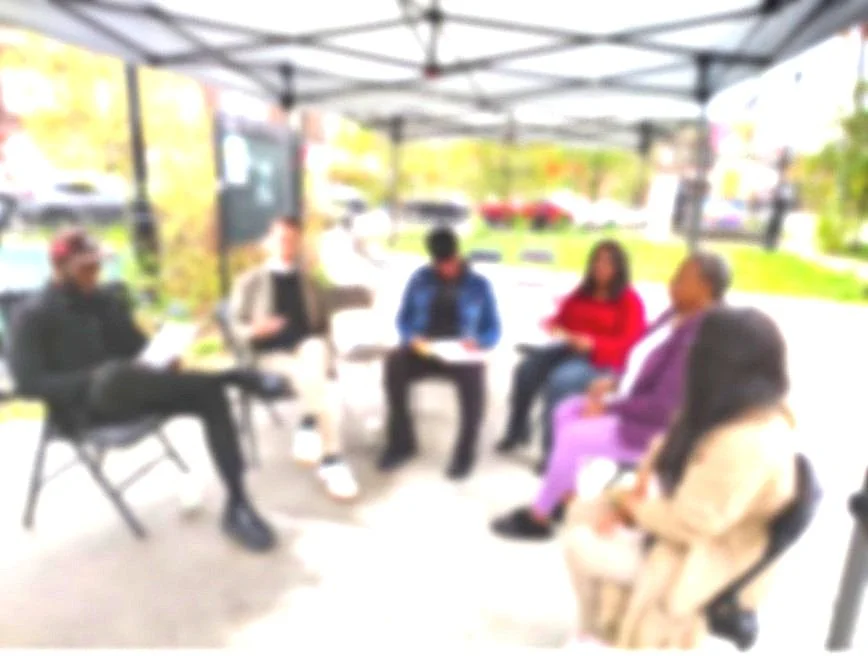The Good Shepherd’s Mother
So today there’s a cultural celebration honoring mothers.
I expand that celebration at The Episcopal Church of St. Paul and Incarnation in Jersey City to include all women; mothers and grandmothers; and sisters; and aunties; and cousins; and nieces; and also, Godmothers.
Women, may God bless you all…thank you for blessing us, with indefatigable grace; and patience; and wisdom; your no-nonsense perspective; your sometimes playful silliness; and always your fierce protection of who you love, we your children.
We have grown from you.
We have grown with you.
We are better from you.
Thank you.
The second cultural allusion this morning is told in the Gospel of John. Jesus tells his disciples he’s a shepherd, the good shepherd. We all know Jesus is not actually a shepherd right?
Jesus was a Rabbi; he’s a teacher; even though he apprenticed in the trades as a carpenter, there’s no evidence he was remembered for his wood-working skills. There are for instance, no chairs built by Jesus in existence today. (Though there are plenty of churches, hospitals, food pantries, elementary schools, colleges and universities that credit him with their creation.)
It’s more accurate to say that with his hands Jesus built; and then with his words; and then with his spirit, Jesus built the Kingdom of Heaven. Jesus taught his disciples to do the same. Build the Kingdom: one table; one person; one act; one prayer at a time.
Perhaps it is through the familiar 1st century occupation , “shepherd,” which everyone knows means—caring for, leading, guiding, and protecting others—Jesus also shows us how to build the kingdom.
If you happen to think things can’t be built by words, James, Jesus brother, cautioned that our words can help or harm others. However, more than words it’s our imagination—what we believe is and is not possible—that become the real blueprint for the Kingdom of Heaven.
A young man in Triangle Park two weeks ago listened to another man talk.
“Man this is strange to be talking to you all. This is the place I dodged bullets when I was young.”
“That’s deep brother.”
“Now it’s a place I want to plant flowers. It’s a park I want to watch children play in sprinklers. This is a place I want to sit with people who drink their morning coffee…”
The young man who listened agreed. Then he said he had a blueprint for success…and that he’d share his experience with others because “that’s what people who’ve been blessed are supposed to do,” share the path forward. The young man went on the say he shares the way because it’s easier to build strong children than repair broken adults.
He’s right of course.
I smiled while both men spoke. That’s when I do my best work. Maybe you do too…just listening to people who need to speak. Then I asked if I could give him a hug.
“For sure.”
“You know,” I said, “it’s not often I hear Jay-Z and Frederick Douglas quoted in the same idea.”
He laughed. I think he was grateful someone got not only what he was talking about, but knew from who he was taking his ideas.
Jesus is probably grateful too. He’s talking about Davidic Kingship when he’s talking about being a shepherd; a good shepherd. Davidic, as in King David who was once a shepherd. You know him. He’s the one who took his slingshot and killed the giant Goliath. Years later David became King.
Davidic King is truer to what Jesus probably meant when he says, “good shepherd” than what our modern ears hear. When people, even the Pope, hear Jesus talk about being a shepherd, they think he’s talking about spiritual care.
A King. That’s who people hope Jesus would be—not a soft skilled people healer. A recognized political ruler who could command an army—literally, for God’s sake. That’s the pageantry, also literally, of “shepherds keeping watch o’er their flocks by night.” Jesus in this pageant is the baby an Emperor is terrified of. He’s descended from the house and lineage of, yes, David. Jesus is the baby who Kings visit.
Then 30 years pass.
There’s little written or passed on about Jesus in this time. We assume the family which fled for their lives as migrants lived in exile. While Jesus was in exile, the country he was born in is upside down. Then, when people need it most, Jesus appears in the wilderness. Jesus appears in the Gospels just after his cousin John appears.
Jesus and John are the sons of strong women. (They’re fathers are almost incidental.) These boys are children nurtured as revolutionaries by their mothers. They begin to live up to their mothers’ expectations with their first public acts of leadership. They thrill people with their proverbial middle fingers to wealth and power…and their actual embrace of one another—and their love for those in need—endears them to everyone on the margins.
This is it!
…or is it?
Did John and Jesus disappoint people…because neither one of them actually lived up to the imaginary idea of revolution people had for them. Their legacy is passed on by women, “telling” says St. Luke, what sound “like idle tales.”
By the way, not every woman is a good mom. It’s a hard job. So, for every dozen or so mothers that are generous and helpful and strong and supportive is at least one who is broken so badly she can’t see past her own pain and she makes life about herself or worse she takes life out on others around them.
Ooooof.
The broken world that’s what my friend wanted to acknowledge in her address to a college choir that sang its last song at its last concert. It was the college that Jersey City faithful church goer and character actor James Rebhorn graduated from. You might know James. If you did not sit behind him in the pews of St. Paul’s Lutheran Church on Hoboken Avenue, he was the dad in the talented Mr. Ripley and the Dean in Scent of a Woman.
James’ Alma Mater, Wittenberg University, in Springfield, Ohio is in rough shape. My friend is the Chaplain there. Most kids at the Lutheran college aren’t Lutheran anymore. Most aren’t Christian. Most aren’t anything, none is what sociologists call them. So instead of a prayer book or Bible, that may mean something to you, but doesn’t even register as familiar, let alone meaningful to students, the Chaplain used a plot line from the new streaming show The Pitt and then she used dialogue from an episode as the words for a blessing.
“Friends” she said to the choir all out of music “There are 4 things said at the end of life that a physician who’s seen many people pass away need to hear on their journey. Your choir is passing away. So I thought it would be appropriate to say them to you.
I love you.
Thank you.
I forgive you.
Please forgive me.”
Is that what; exactly what; kind of what; is that sort of what Jesus is doing, in some form?
Is Jesus using culture for the Kingdom of Heaven’s benefit?
Is he saying something through layers of scripture; tradition…and near east pop culture?
“I am the good shepherd…”
Is that what we’re doing when we praise women on Mother’s Day?
It’s our mom yes, of course we are honoring. But there are a lot of moms here…you’re not related. So are we honoring and thanking an ideal mom too. Someone who is nurturing and kind and caring and “follows us all the days of our lives”—like, a good shepherd?
I put that as a question because our yearning for meaning, our thirst for God, is not unlike those people of the pluralistic 1st century.
Rather than having people profess a creed or agree to a theological idea Jesus offers bread and wine. Jesus offers fish and bread. Sometimes Jesus just asks for or offers water. And then Jesus says the things people most need to hear.
I love you.
Thank you.
I forgive you.
Please forgive me
…whether we hear what we need to hear from scripture, or tradition, or even pop culture, may we touch and be touched by the Lord as the good shepherd and may we celebrate mothers on Mother’s Day.
God bless you all.

